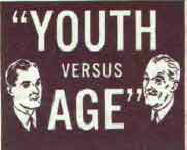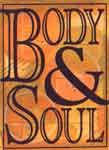© 2019 Steve Campsall
| BINARY | OPPOSITION |



Structuralists such as Roland Barthes and Jacques Derrida wanted to know how language came to have the meanings we associate with it They realised something very important - that the meaning we ascribe to a word is 'culturally constructed' rather than inherent within the word itself. If you consider, for example, the word 'hero', its meaning doesn't exist on its own - it is intimately tied up with the meanings of another word, 'coward'. They realised that the two words were, in effect, cultural, or 'binary' opposites - they were in opposition to each other with each relying on the other to help out or provide some of its core meaning.
Many of our society's most enduring ideas are maintained and reinforced by the fact that their meanings are created by the workings of binary opposition. For example, if you reflect on what the three pairs of terms in the above images mean to you, wealth and poverty, youth and age, body and soul, you should begin to see how the meaning of each term is shaped by the existence of the word's binary opposite. Our attitude towards youth, for example, is shaped massively by the idea of old age. These ideas also, as so often is the case, ingrained attitudes properly called dominant ideologies. It seems as if ideology itself operates through this same system of binary opposition.
All rather obvious, some might say. Is that all there is to it? No... there is much more; and the implications of this understanding are extraordinary and vast. What will not be so immediately obvious at this stage is what this understanding means at a deeper level, for not just meaning but feeling also becomes involved in the generation of meaning. In the case of poverty and wealth, you will recognise that we tend to judge a poor person negatively simply because they are not wealthy; we might well feel sympathy for that person, but in very real ways, we will hold to our deeply conditioned negative response to the idea of poverty and transfer this negativity to the poor person.
Think of any other two binary opposites and you will see the same effect occurs. Somehow, one term - one half of each binary pair - creates a more positive feeling (a kind of positive 'spin') than does its 'opposite' cultural counterpart.
There are three stages to this theory that you need to grasp:
Hopefully things are becoming clearer but if not, don't worry, both enlightenment and higher marks are but a few web pages away!